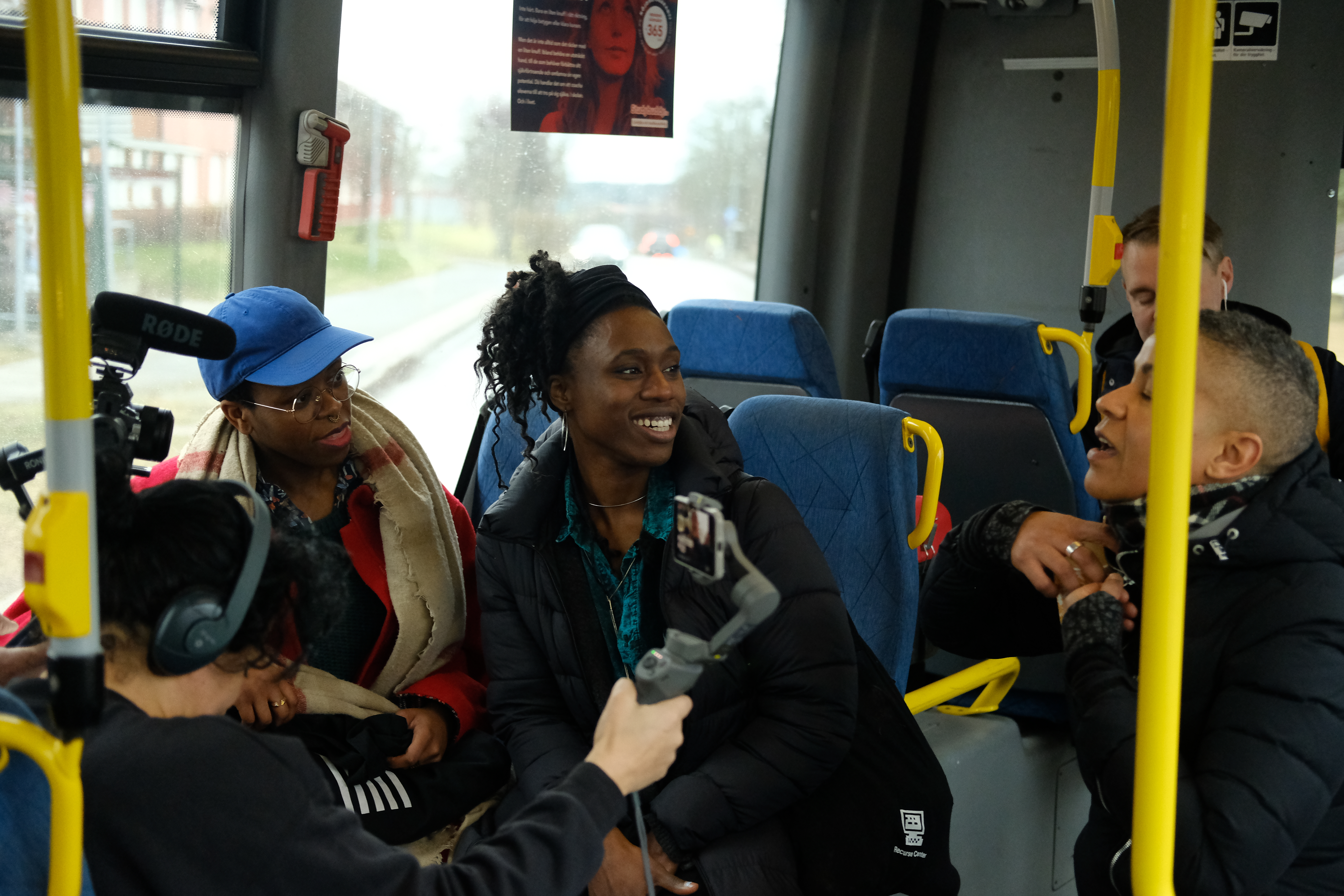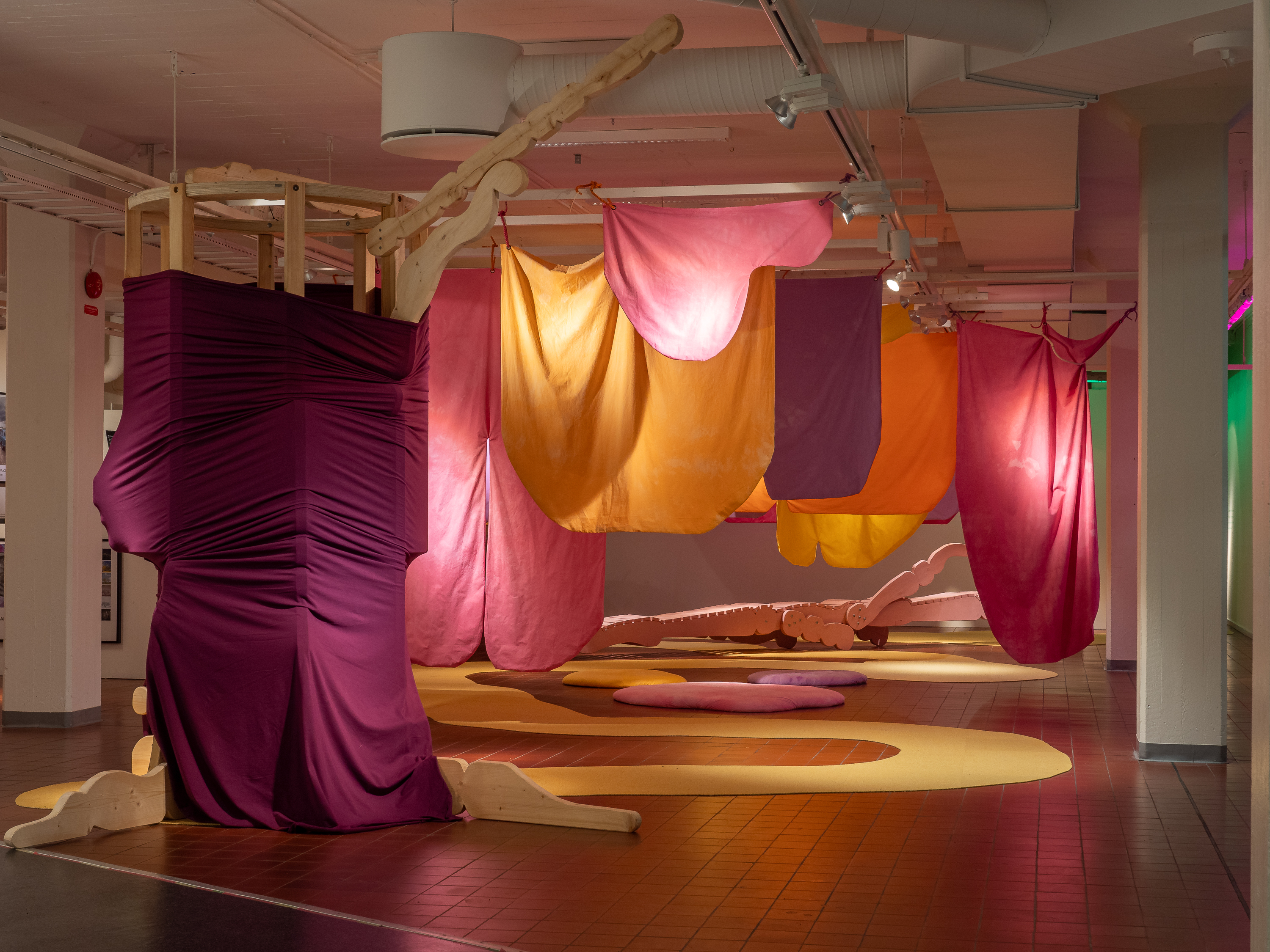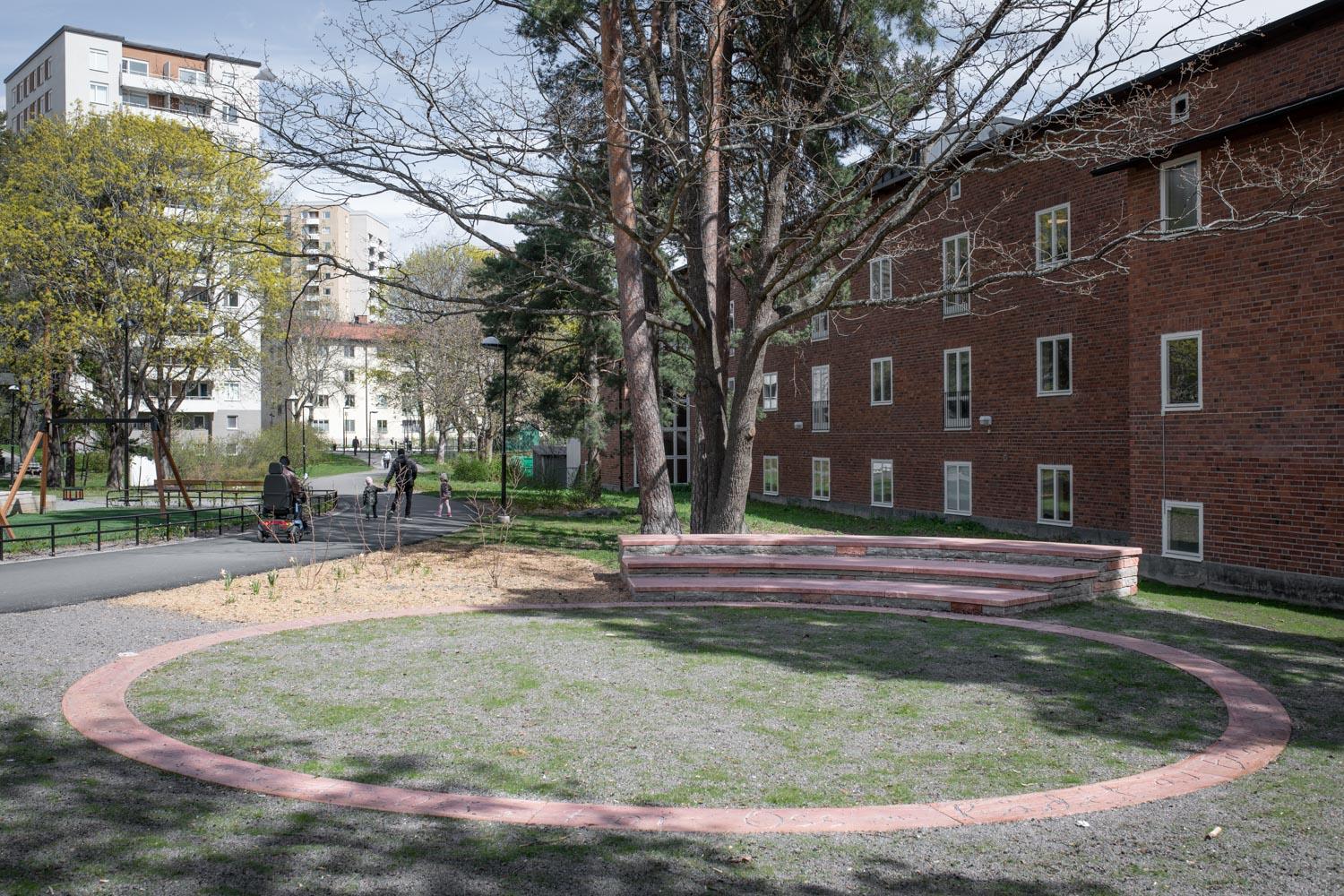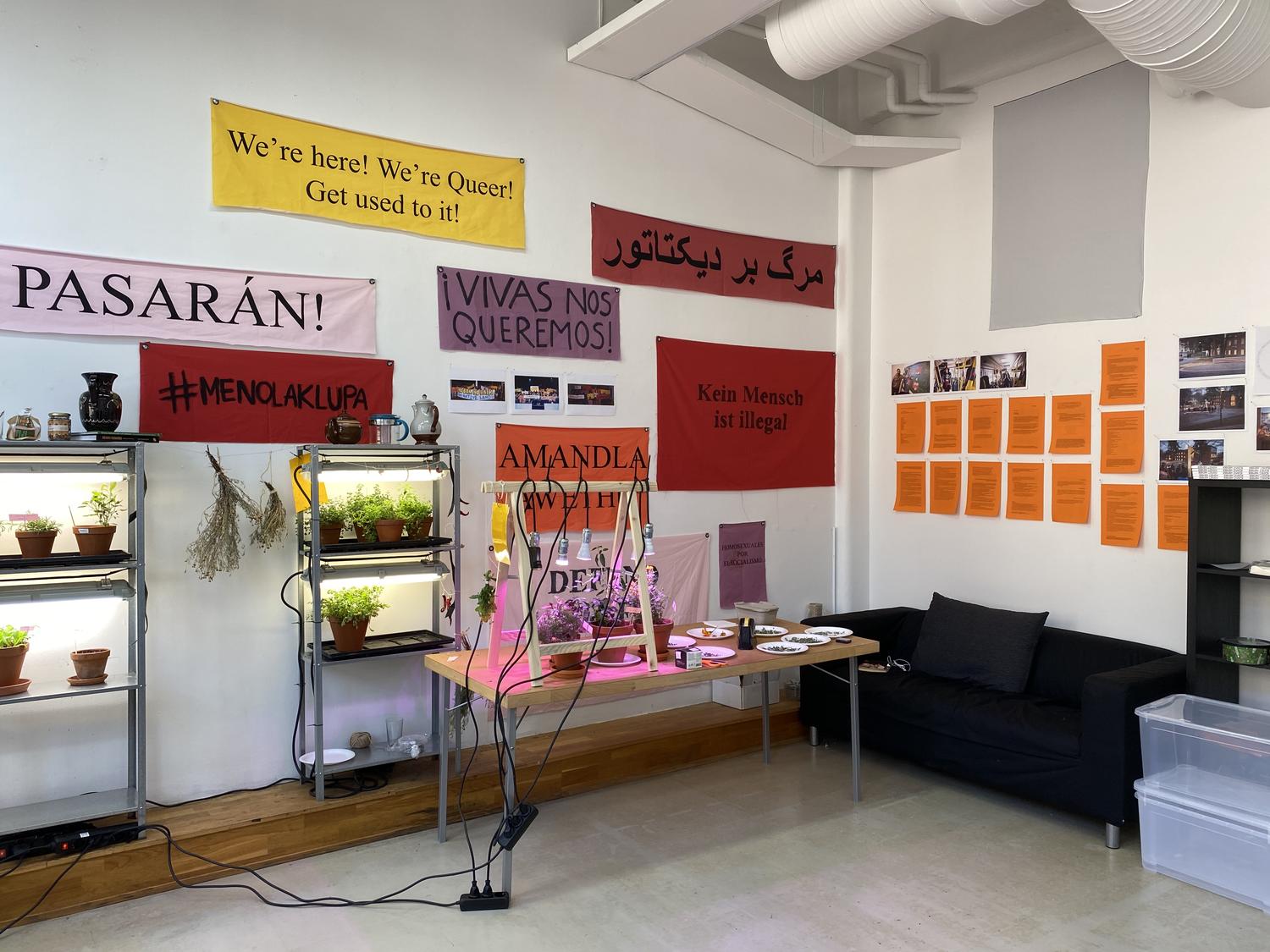![]()
Safar* is a series of performances in public space. These performances are talks between activists, thinkers, witches and artists about anarchy, strategy, possible utopian realities and the spaces our bodies inhabit. Dreams practiced. In wastelands and gardens of exiles. Outside or parallel or beyond the patriarchal, capitalist, heterosexist, colonial, hegemonic order there are realities of sisterhood, love, collaboration, care, hope and community. Sharing influence and not taking power. In solidarity. In Safar the duo aghili/karlsson invites sisters they admire. They ask them to share parts of their lives and their visions in a travelling talk, moving from the center of Stockholm to the duo’s studio in the rural areas on the edge of the city. A participatory travel where others can join in moving, talking and sharing a meal.
*farsi for journey.
Photo: Thomas Straub
Safar is supported by Iaspis, Konstnärsnämnden/The Swedish Arts Grants Committee, Statens Kulturråd/Swedish Arts Council and Kulturförvaltningen Stockholm Region.
in spite of/because of/otherwise to
a reflection on SAFAR by Mmabatho Thobejane
I understand, for the time being, aghili/karlsson’s practice as a multifaceted artistic practice that attends to the crises of the moment. Through Safar, I find a component of their practice rooted in presence, in gathering and in the acceptance and embrace of the simple yet, fundamental axiom: ‘we need each other’. The ‘we’ in Safar is not undifferentiated, it is specific and intentional. It includes ‘activists, thinkers, witches and artists’ and others who have in common dreams and desires of re-existence rooted in sisterhood, love, collaboration, care, hope, community and solidarity.
To partake in Safar, one arrives to the Pendeltåg’s track three at Stockholm City at 13:15. (Although it is a Sunday, there is still the air of chaos and instability that accompanies being in a public space, especially one as central as Stockholms City.) I walk along the platform in search of those I will be travelling and communing with. I find them and I am instantly greeted by the warmth of Nasim and Björn. It is a warmth that opens the day, with which we enter the train, and in which we cocoon for the journey and navigate the collective commute. While cocooned we are wrapped in nourishing worlds of critique, of imagining, where love is the rule. While enveloped we hear the muffled sounds of the parallel world; the train’s voice announcing the next stop and the hushed conversations of walkers-by on their respective journeys. We are reminded that our journey is a world, and consists of worlds, where existences and living, for the time being especially, are crafted in spite of/because of/otherwise to a World that would rather exist alone, proclaiming, ‘there is no alternative!’ But there is. Safar reminds us that the alternatives are plenty and they co-exist and seek to learn from each other.
Safar is impossible without aghili/karlsson, primarily because of the hope, the care and kindness they inspire and with which they hold and sustain the journey from Stockholms City to Järna. To craft a space like this, filled with testimony and witnessing, a space where we can hold each other even if only for four hours on a wintery and dark Sunday afternoon is no easy feat. Safar opens the space for the kind of relationality necessitated by a decolonial and/or anticolonial love and allows us to find each other against the logics that would separate us.1 It also necessitates that once we arrive, and as we travel together, we are each implicated, enmeshed.
The speakers are generous in their sharing and open up life-giving conversations that inspire deep self-reflection: how may I reconfigure my existence to also be life-giving? As a participant, I felt called to a gentle unravelling and, in this space of mutual learning, gently stirred to becoming aware of the limits that exist inside me: where inside me does love not grow? What of the mechanisms of my inner world puts me out of alignment with the dreams and utopias I hope to co-create?
If we often find in some artistic practices proposals and imaginations of the future as desolate apocalyptic landscapes, as out there, aghili/karlsson posits something different. They implore our imagination and our doing toward worlds and living where breathing is more effortless, even if underwater or in wastelands. They implore us toward a present lived in radical hope, a present where utopian dreams may be practised, while holding on to each other.1. Irmgard Emmelhainz in ‘Can
We Share a World Beyond Representation?’, E-Flux, no. 106 (February 2020), https://www.e-flux.com/journal/106/314167/can-we-share-a-world-beyond-representation/ and ‘Decolonial Love’, E-Flux, no. 99 (April 2019), https://www.e-flux.com/journal/99/262398/decolonial-love/ has been instructive for my thinking here.











